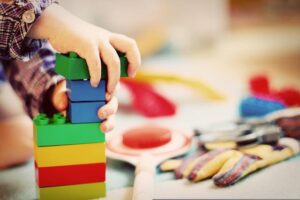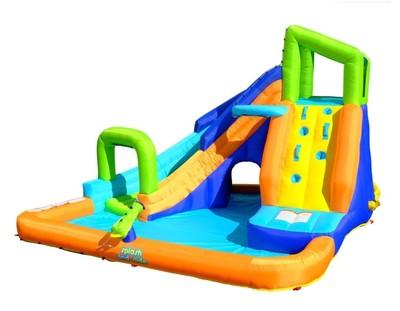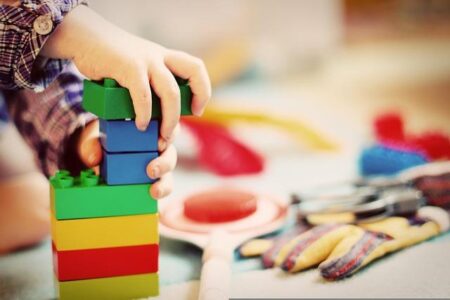Preventing the Summer Learning Loss: Effective Approaches for Parents
What Is the Summer Learning Loss and Why It Matters
During the extended break from school, many students experience a decline in their academic abilities, a phenomenon commonly known as the summer learning loss. Studies reveal that children can lose nearly two months of progress in reading and math skills if they do not engage in educational activities throughout the summer. This setback is especially significant for younger students who are still building essential foundational knowledge.
Beyond just academic performance, this regression can negatively affect a childŌĆÖs confidence and enthusiasm for learning. To counteract this, caregivers can integrate enjoyable yet intellectually enriching activities into daily routines. Some effective methods include:
- Shared reading sessions: Regularly reading together introduces new vocabulary and ideas.
- Everyday math practice: Activities like budgeting during grocery shopping or measuring ingredients help apply math in real life.
- Educational board and digital games: These foster analytical thinking and problem-solving skills.
- Exploring nature: Outdoor activities such as identifying local flora and fauna encourage scientific curiosity.
| Subject | Typical Summer Skill Decline | Suggested Activity |
|---|---|---|
| Reading | 1-2 months | Daily story reading |
| Mathematics | 1.5 months | Hands-on problem solving |
| Science | Varies | Outdoor exploration |
Designing Stimulating Activities to Keep Children Mentally Engaged
Maintaining childrenŌĆÖs intellectual engagement during summer requires a blend of enjoyable and challenging tasks that nurture creativity and critical thinking. Parents can ignite curiosity through activities like brain teasers, memory challenges, and themed scavenger hunts. These not only reinforce academic concepts but also improve concentration and reasoning skills. Additionally, home-based science experiments or interactive storytelling can transform learning into an exciting journey, preventing cognitive stagnation.
Balancing indoor and outdoor experiences ensures comprehensive mental development. Consider incorporating:
- Nature journaling: Encourages detailed observation and descriptive writing while exploring the environment.
- Cooking with math: Using recipes to practice measurements and fractions.
- Artistic projects: Drawing, painting, or crafting to boost fine motor skills and imagination.
- Educational technology: Selective use of apps that adapt to a childŌĆÖs learning level.
| Activity | Skills Enhanced | Estimated Time |
|---|---|---|
| Scavenger Hunt | Observation, Logical Thinking | 30-40 minutes |
| Kitchen Math | Numeracy, Sequencing | 20-30 minutes |
| Storytelling Sessions | Language, Creativity | 15-25 minutes |
| Home Science Experiments | Inquiry, Hypothesis Testing | 40-50 minutes |
Utilizing Outdoor and Community Resources to Enhance Learning
Engaging with nature and local community resources offers invaluable educational opportunities during summer. Parks, botanical gardens, and wildlife reserves provide hands-on learning experiences that stimulate curiosity and reinforce STEM concepts. Activities such as cataloging insects, measuring plant growth, or bird identification combine physical activity with academic enrichment, supporting both mental and physical health.
Local institutions often host programs that encourage continuous learning. Families can take advantage of:
- Library reading groups and storytelling hours to improve literacy and social skills.
- Interactive museum exhibits and science workshops that inspire creativity and critical thinking.
- Community art classes and cultural festivals to foster artistic expression and cultural understanding.
| Community Resource | Educational Advantage | Cost |
|---|---|---|
| Public Library | Enhances reading and language skills | Free |
| Nature Centers | Promotes environmental science learning | Low-cost or donation-based |
| Community Art Programs | Encourages creativity and cultural awareness | Free or minimal fee |
Building Consistent Daily Routines to Foster Summer Learning
Establishing a structured daily schedule during summer can significantly reduce learning loss and keep children intellectually active. Parents should aim to balance academic tasks with leisure and physical activity, creating a natural and enjoyable learning environment. For instance, dedicating mornings to reading and educational games followed by afternoon outdoor play and creative projects can maintain enthusiasm and cognitive skills.
Incorporating diverse activities that target various developmental areas is essential. Suggested components include:
- Academic challenges: Reading goals, math puzzles, or tailored online lessons.
- Physical activity: Outdoor sports, family walks, or bike rides to promote health.
- Creative expression: Music, drawing, or crafting sessions to nurture imagination.
- Social engagement: Virtual hangouts or safe in-person playdates to maintain interpersonal skills.
| Time | Activity | Objective |
|---|---|---|
| 9:00 – 10:00 AM | Reading and Journaling | Boost literacy and reflective thinking |
| 10:30 – 11:30 AM | Math Games | Enhance numerical reasoning |
| 1:00 – 2:00 PM | Outdoor Play | Support physical fitness and creativity |
| 3:00 – 4:00 PM | Arts and Crafts | Develop artistic skills and relaxation |
Looking Ahead: Sustaining Academic Growth Through Summer
As summer progresses, parents have a crucial role in helping children maintain their academic momentum and cultivate a passion for learning. By integrating engaging educational activities, establishing steady routines, and encouraging exploration and reading, families can effectively mitigate the summer learning loss. Proactive involvement not only preserves the knowledge gained during the school year but also prepares students for a confident and successful return to school. For additional support, parents can explore local educational programs and community initiatives dedicated to summer learning enrichment.








